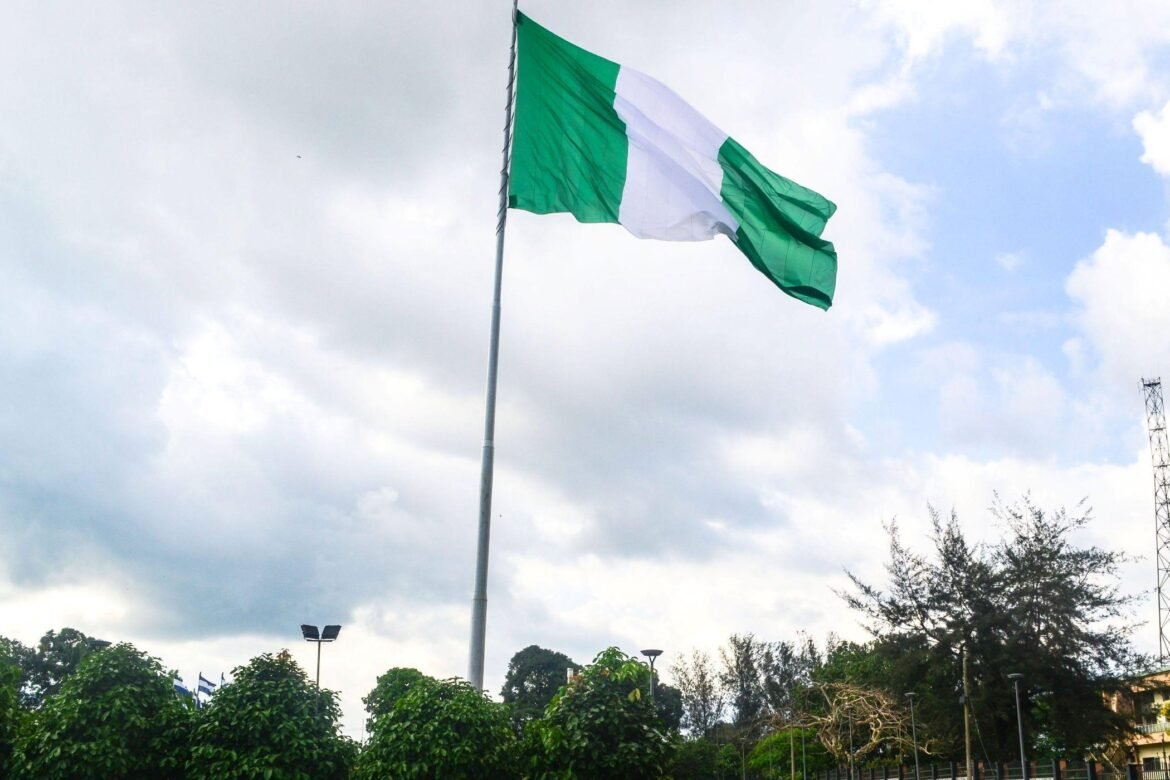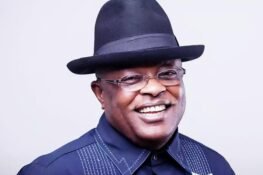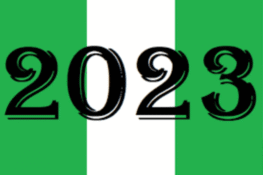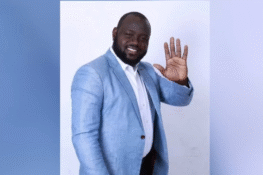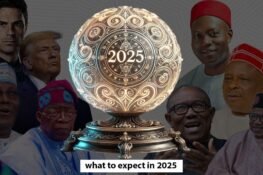Let’s face it, most Nigerians have problems stacked against them too high to be happy.
In housing, social services, infrastructure or more simply in the cost of food, many households are being crushed under the weight of a degraded economy.
Yet, the new year celebration was as loud as during the good times.
Nigerians are known to have an inexplicable endurance for hardship, producing a remarkable reputation for being happy while suffering.
In a song, Afrobeat legend, Fela Anikulapo-Kuti, called this attitude Shuffering and Shmiling.
Nigerians do not have to be comfortable to be happy.
There is this video clip that makes its way around the social media where female peddlers got into the groove in a rhythmic swing to local music on the street while obviously just being barely able to make the ends meet.
One really cannot say if there has ever been a reason to be happy about Nigeria since 1982, when the first dose of economic bitterness was administered by the Second Republic government of Shehu Shagari, who introduced Austerity Measures.
That was the year when things took a nose dive, after a period of untold prosperity brought about by stupendous income from oil money.
That year saw a sharp drop in economic power as well as the pride of Nigerians.
The naira, symbolic of the oil wealth, had become a convertible legal tender across the world, having more value than the dollar and almost at par with the British Pound Sterling.
The naira has never recovered since it crashed under Shagari.
The World Bank reports that while inflation has been neutralized a bit, “Nigeria’s GDP is forecast to grow more slowly compared to emerging economies and oil-producing countries” in 2022
In a way, Nigerians too have never recovered from their crash with the naira.
Some public facilities have neither been rebuilt, repaired nor expanded, even as the population has more than doubled since the 1970s.
A lot of public and private projects started then could not be completed and hopes have been dashed permanently.
The Naira is today so dwarfed that it cannot not be spent outside of Nigeria.
It is also not the currency of choice among wealthy Nigerians within Nigeria itself.
The national currency has further declined by more than 150 per cent in less than two years, piling upon the common man such a devastating economic pressure that makes Nigeria the home to one of the largest clusters of poor people on earth.
No fewer than 40 per cent of Nigeria’s population are officially and abjectly poor, as they live on less than N1,000 or $2 per day – representing roughly 12 per cent of the global poor.
If you were to beam a camera onto the homes of nearly half of Nigerians, you would see a picture people having no food, the sick with no money to see a doctor and children hungry or malnourished.
Yet, millions of Nigerians went into 2022 in the traditional frenzy of the new year. I can only guess they haven’t perceived what is on the horizon; because if they did, they might, for once, suspend the hysteria.
The year 2022 promises to be one in which the ordinary Nigerian faces dire consequences for bad domestic agenda.
Nigerians usually await prophecies as laxatives from religious experts. This year, they need actual miracles.
The Federal Government is about to set off an economic holocaust.
Acting on the guidance of the Bretton Woods institutions, a gradual unleashing of structural adjustment that started about a year ago will go full steam.
As part of the belt tightening, the Naira had been devalued, causing a tsunami of sorts with hyper-inflation in the prices of consumer goods and services last year.
There is no Nigerian who has not felt a consequence of the dwindling value of the currency.
The inflation rate is at nearly 17% while inflation is less than 6% in the rest of the West African sub-region.
On top of that is an impending withdraw of subsidies from petroleum products and an increase in the consumer prices of electricity.
The labour union is already anticipating the double whammy by planning a number of industrial actions to counteract the fallout from the government’s plans.
From February 1st, national protests against the removal of subsidies are to start.
The laboUr market is already strained.
Nigeria has one of the highest unemployment rates in the world – at nearly 40 per cent of the working population.
Not only has inflation pulverized the Nigerian worker, – when they receive any salaries at all – so many are just adults gone broke.
With higher costs of petroleum and electricity, the economic hardship will just bite harder.
Most Nigerians will get poorer this year, as they have been doing for more than six years, and spending power will further decline. Misery will be piled upon misery and daily challenges will be layered.
I read the other day President Mohammadu Buhari’s 100 achievements in 2021 and I wondered in what universe his image polishers have been living.
They awarded him A+ grades in subjects where he was the dullest among leaders.
For one, the nation is drowning in debt.
In fact, the economy is run on borrowing, since oil revenue has dropped to a trickle.
The national debt is now estimated at $40 billion and rising by about $10 billion per year.
Besides, insecurity is both a national headache and heartache.
It has never been this bad. Nigerians cannot safely travel or sleep.
Every day, there is some bandit somewhere raiding a community and killing innocent people.
Investments will not grow as expected in a climate of uncertainty.
Who will invest in a society where not even traditional rulers or religious leaders are safe from being wrapped up for a ransom?
Which businessman is that crazy to throw money at instability?
On top of violence, corruption will not shift position in 2022.
The corrupt leaders, practically everyone entrusted with power at all levels, those oga patapatas at the top, do not care how many people are waiting for the food in the pot.
They will drop a few portions in some plates and carry the whole pot to their backyards.
The upper crust will continue to take the whole and any trickles will be insufficient for the growing population of the needy.
No fewer than 40 per cent of Nigeria’s population are officially and abjectly poor, as they live on less than N1,000 or $2 per day – representing roughly 12 per cent of the global poor
Hardship is not always economic, it can be political too; and it is.
The hope of Nigerians to enjoy free and fair elections has been stolen by the refusal of President Buhari to approve new electoral laws that can unshackle the people from predatory politicking and grandstanding.
Giving flimsy excuses, he jettisoned years of agitation for solutions that could have allowed accurate and speedy release of election results, proportional representation, a more democratic electoral body and the diaspora to exercise their citizenship rights to vote.
For whatever reasons, the President saw the baby in the bathwater, and decided to get rid of both!
Where is the hope for 2022 except in miracles?
Good enough, Nigerians are attentive audiences of their General Overseers, Bishops and other professional soothsayers, who pick this time of the year to dish out sweet-tongued predictions or distractions from realities.
But wishful thinking does not change realities.
The World Bank reports that while inflation has been neutralized a bit, “Nigeria’s GDP is forecast to grow more slowly compared to emerging economies and oil-producing countries” in 2022.
Its lead economist for Nigeria, Marco Hernandez, said inflation, especially in food prices, will exacerbate poverty and food insecurity.
Growth is forecast to lag the rest of Africa with food becoming more unaffordable, insecurity worsening, reforms stalling and poverty rising further.
Some prophets may have a different view, but this is the economic reality for 2022 from experts.
But I understand what new year celebrations mean to Nigerians.
It was not about having food or shelter but a gratitude to be alive.
Alive to see more of the same. Alive to suffer under incompetent and greedy leaders. Alive to take more beating.
Happy new year!
